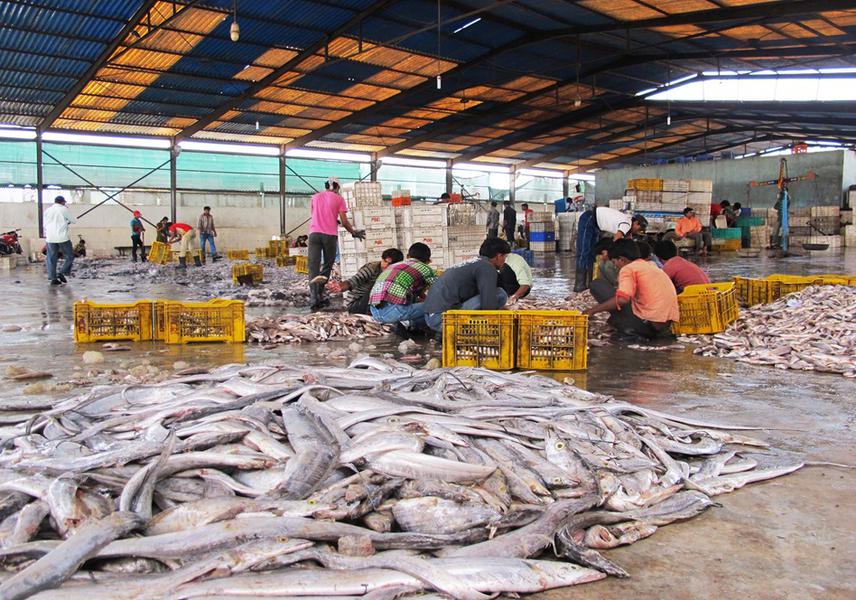Sapna Jayaraman
There are two aims to this project:
a) Creating a database of fish breeding cycles to identify most vulnerable seasons for fish populations and
b) Identifying causes of poor implementation using interview surveys and providing solutions to enable better management of fish populations in Gujarat through outreach programmes.

Ribbonfish caught using trawl nets.
India is one of the leading producers of seafood in the world with the state of Gujarat being the largest contributor to seafood production in India. Gujarat has enacted strict legislation to regulate the exploitation of marine life through its fisheries act of 2003. However, despite this legislation, there are clear signs of overfishing and decline in fish populations. One of the main causes for this is the lack of data on breeding cycles of locally present fish species to determine when fishing activities need to be regulated. Besides this, low enforcement of fisheries regulations and non-compliance of fishers with fisheries regulations may be leading to poor implementation of existing regulations. As the fishery expands to accommodate increasing demand from national and international markets, this gap between legislation and implementation becomes a very serious threat to the fishery and to local fish populations in Gujarat.
This project aims to fill the gap between legislation and implementation by:
a) building a database on fish breeding cycles to determine when fishing activities need to be regulated most
b) engaging with government fisheries officials and local fishermen in order to identify causes of implementation failure and provide solutions to help manage the fishery in a more sustainable manner.
Fish catch monitoring will help identify breeding seasons for different fish species as well as the role of different gear types in the capture of gravid females and juveniles. Interview surveys with government officials and local fishermen will be conducted to understand reasons for poor implementation and non-compliance with existing regulations. Insights gained through these surveys will help examine the ecological, economic and social feasibility of current fishing regulations.
Workshops will be conducted with local fishermen to increase awareness regarding the importance of fisheries regulations and fisheries management. Information on breeding cycles of locally consumed fish species will be communicated to government officials for more informed management of the fishery. This information will also be used to create guidelines for consumers on sustainable seafood choices in different seasons. This will help create awareness at the local and national level about the effects of harmful fishing practices on fish populations and may reduce market demand for species which are breeding during specific seasons.